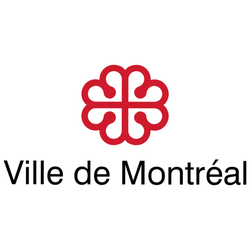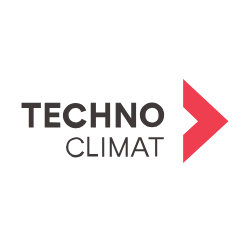
Program for financial contributions to the ecological transition
At a glance
- Maximum amount : 50,000 $
- Up to 75% of project cost
- Open Date : February 15, 2025
- Closing date : June 15, 2025
- Agriculture, forestry, fishing and hunting
- Transportation and warehousing
- Administrative and support, waste management and remediation services
- Montréal
- Non-profit
- Public or Parapublic institution
- Non-financial cooperative
- All revenue ranges
- All organization sizes
- All groups
- Environment
- Economic, Social and Community Development
- General public
- Nonprofits / charities
- Community leaders
- Mixed revenue (<50% earned)
- Municipal
Overview
Montreal's 2023-2025 Ecological Transition Program provides financial support to non-profits and cooperatives for projects that reduce greenhouse gas emissions, improve climate resilience, and foster sustainable urban agriculture, emphasizing systematic change and community engagement.
Activities funded
- Projects aimed at reducing greenhouse gas emissions, such as decreasing the use of motorized transportation and promoting active mobility.
- Adaptation projects focusing on adjusting territories, infrastructures, arrangements, equipment, and communities to climate change impacts.
- Community resilience projects supporting the ability of the population to respond to climate-related challenges, ensuring territorial equity, and enhancing safety within neighborhoods.
- Projects promoting citizen action or developing community skills in ecological transition, such as urban agriculture or gardening through information, awareness, education, or mobilization.
- Initiatives that demonstrate strong links with the Plan climat 2020-2030, the Urban Agriculture Strategy 2021-2026, or the Management of Residual Materials Master Plan 2020-2025.
- Projects with high potential for reproducibility or significant contribution to systemic change.
Eligibility
The eligibility for this grant is specified for certain types of organizations and conditions they must meet.
- The applicant must be a non-profit organization (OBNL) duly constituted according to part III of the Companies Act (L.R.Q., Chap.C-38) or under the Canadian Not-for-profit Corporations Act (L.C. 2009, c.23) or a non-profit cooperative constituted under the Cooperatives Act (C-67.2).
- The organization must operate within the Montreal territory.
- The organization must comply with all applicable laws.
- The organization must submit all requested information and documents to the City by the project call deadlines.
Who is eligible?
The Guide d’accompagnement Programme de contributions financières pour la transition écologique 2025, volet 1, outlines specific eligibility criteria for potential applicants wishing to advance ecological transition initiatives in Montreal.
- Eligible applicants must be non-profit organizations (OBNLs) duly constituted under Quebec's Companies Act Part III or the Canada Not-for-profit Corporations Act, or a non-profit cooperative under the Quebec Cooperative Act.
- Applicants must operate within the territory of Montreal.
- Applicants need to be compliant with all legislation applicable to their organization.
- Complete submission of required information and documents by the prescribed application deadline is mandatory.
Who is not eligible
This grant excludes certain organizations from eligibility based on their revenue sources and primary mission. Restrictions aim to ensure that the benefits support entities focused on the ecological transition.
- Organizations with more than 50% revenue generated from product or service sales.
- Parapublic organizations.
- Political, professional union, or religious groups.
- Government agencies or organizations resulting from public-private partnerships.
- Organizations with a primary mission of conducting research activities.
- Educational institutions.
- Private foundations and other entities primarily focused on redistributing funds to non-profits.
Eligible expenses
The grant covers expenses that are directly tied to the execution of the project involving necessary goods or services.
- Research and project design costs, fees, and target audience recruitment.
- Speakers' fees, materials and equipment, assembly or installation costs.
- Documentation costs (video, Internet, photos, etc.), press relations, social media, and communication tools.
- Project coordination, administration, insurance costs, etc.
Selection criteria
The evaluation and selection of projects for this grant are based on specific criteria, each with a defined weight, to ensure the alignment with the overarching goals of ecological transition and community resilience as outlined in Montreal’s strategic plans.
- Evaluation of the applicant (15%)
- Alignment of the applicant’s mission with the city’s ecological transition and resilience orientations. (5%)
- Demonstrated capacity to accomplish the proposed activities. (5%)
- Qualifications of the main project contributors. (5%)
- Project evaluation (85%)
- Relevance of the project for the implementation of the Climate Plan 2020-2030, the Urban Agriculture Strategy 2021-2026, or the Waste Management Master Plan 2020-2025. (20%)
- Quantitative outcomes, systemic impacts, sustainability, and scale of the project. (35%)
- Proponent’s knowledge and project coherence with the targeted context. (10%)
- Technical feasibility (objectives, resources, and timelines). (10%)
- Quality of project planning, including financial structuring, budget breakdown, and alignment with methodologies. (10%)
How to apply
Preparation of the documentation
- Fill out the application form.
- Prepare the updated list of board members.
- Gather the letters patent of the organization.
- Obtain the bylaws of the organization.
- Collect the latest financial statements of the organization.
- Adopt a resolution from the board authorizing the submission of the financial support application and appointing a responsible individual.
- Draft a detailed project presentation, including links to the Climate Plan 2020-2030, the PMGMR 2020-2025, and the Urban Agriculture Strategy 2021-2026, as well as the action plan.
- Develop the budget for each year targeted by the project.
- Obtain letters of commitment from partners, if applicable.
Submission of the request
- Send all required documents to the email address bter@montreal.ca.
- Meet the deadlines established during the calls for projects.
- Wait for the acknowledgment of receipt sent by the Office of Ecological Transition and Resilience.
Additional information
Here are additional relevant details for this grant:
- Projects must commence within 120 days following the signing of the financial contribution agreement.
- A contribution of at least 25% of the total project value is required from the applicant, which can be in kind.
- The program emphasizes the importance of projects that have a high potential for replication or contribute significantly to systemic change.
- Funding is limited to a maximum of $50,000 per project.
- Eligible projects must provide a detailed financial breakdown demonstrating anticipated revenue and expenses.
- The program allows funding for up to three years maximum, with ongoing evaluation of project outcomes required.
- A mid-term report and final report are necessary to receive subsequent funding installments.
Contacts
Frequently Asked Questions about the Program for financial contributions to the ecological transition Program
What is the Program for financial contributions to the ecological transition?
How much funding can be received?
What is the deadline to apply?
What expenses are eligible under Program for financial contributions to the ecological transition?
Who can I contact for more information about the Program for financial contributions to the ecological transition?
Where is the Program for financial contributions to the ecological transition available?
Is the Program for financial contributions to the ecological transition a grant, loan, or tax credit?
More programs like this

Support for biofood exports - individual projects
Ministry of Agriculture, Fisheries and Food (MAPAQ)
ÉcoPerformance — Recommissioning of building mechanical systems
Gouvernement du Québec
Financing to respond to the offensive of new tariffs and for initiatives for resilient and exporting companies (FRONTIERE)
Investissement Québec (IQ)
Program to support the development of agriculture and agri-food in the regions
Ministry of Agriculture, Fisheries and Food (MAPAQ)
Efficient Solutions Program — Agricultural Component
Hydro-Québec
PADAAR — Measure 4021 – Promotion of regional products
Ministry of Agriculture, Fisheries and Food (MAPAQ)
Support program for the development of reserved designations and promotional terms — Component 1
Ministry of Agriculture, Fisheries and Food (MAPAQ)
AgroPerformance – Stream 1 : Support for the agricultural sector in adopting agritechnologies
Gouvernement du Québec
Innovative Projects Program
Hydro-Québec